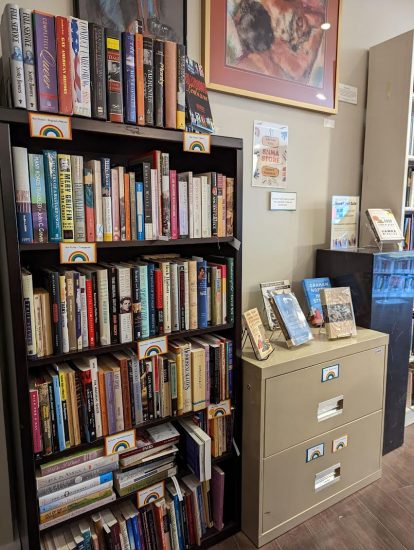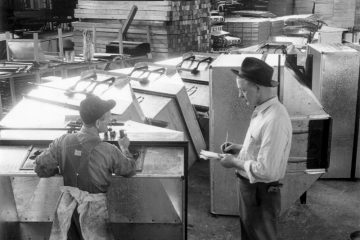Written by: Gabrielle S. Vasquez Bates
Edited by: Adina Vega and Jenny Roach
As librarians, we are keepers of stories. We read, research, write, create, share, educate, and archive. In light of current events surrounding the LGBTQIA community, we can choose to be pessimistic or we can celebrate. I choose to be a beacon of light. While most history classes do not mention much about key figures or moments in LGBTQ history, others have been revolutionary for posterity.
In 1952, Jim Kepner and some friends began ONE, a magazine for homosexuals. This project evolved into the One Archives at USC Libraries, which is the most extensive (and oldest) LGBTQ+ collection in the world. The magazine later evolved into the One Institute, focusing on advocacy and education. At one point they issued degrees in Homophiles Studies. This collection consists of art, audiovisuals, periodicals, books, and digital files. The ONE Archives can only be accessed in the reading room, by appointment only. Group tours can also be arranged. They are free but donations are greatly appreciated.

Image of the SNMAL bookstore.
You may have heard of the Stonewall Riots that took place in New York. Well, The Stonewall National Museum and Archives (SNMAL) is not related to the riots. In fact, they are located in Southern Florida. They decided to use the name to honor that part of LGBTQ+ history. SNMAL’s mission is to promote compassion, through collecting, preserving, and sharing LGBTQ+ stories. This is accomplished through monthly programming. One of their popular events is Doughnuts and Conversation, which provides a supportive environment where people can gather and discuss current events and build community. They also hold movie nights, conversation events with featured guests, exhibits, and a theater club. Be sure to explore their YouTube channel for recorded conversations with authors, artists, and activists. You’re sure to discover something new!
The Digital Transgender Archive (DTA) is housed in Boston at Northeastern University. This collection is a universal collaboration involving over sixty universities, colleges, public libraries, nonprofits, and exclusive collections. The digital format allows for wider access to trans history, in hopes of educating and contributing to continuing discourse.
Language proved to be an issue for the creators of DTA, K.J. Rawson, and Nick Matte, which complicated the process of identifying and collecting trans history materials. The term transgender is moderately new. Much of the information prior to 1990 does not include this term, which makes it more difficult to find in the record. Without adequate and persistent research, much of trans history could be lost. There is much to explore within this collection like publications, photographs, oral history, and (my favorite) buttons.

One of the buttons from the DTA collection.
There is not enough space to showcase all the incredible LGBTQ+ archives and museum collections. I hope this inspires you to seek out other collections and to continue to hold stories for future generations.



0 Comments